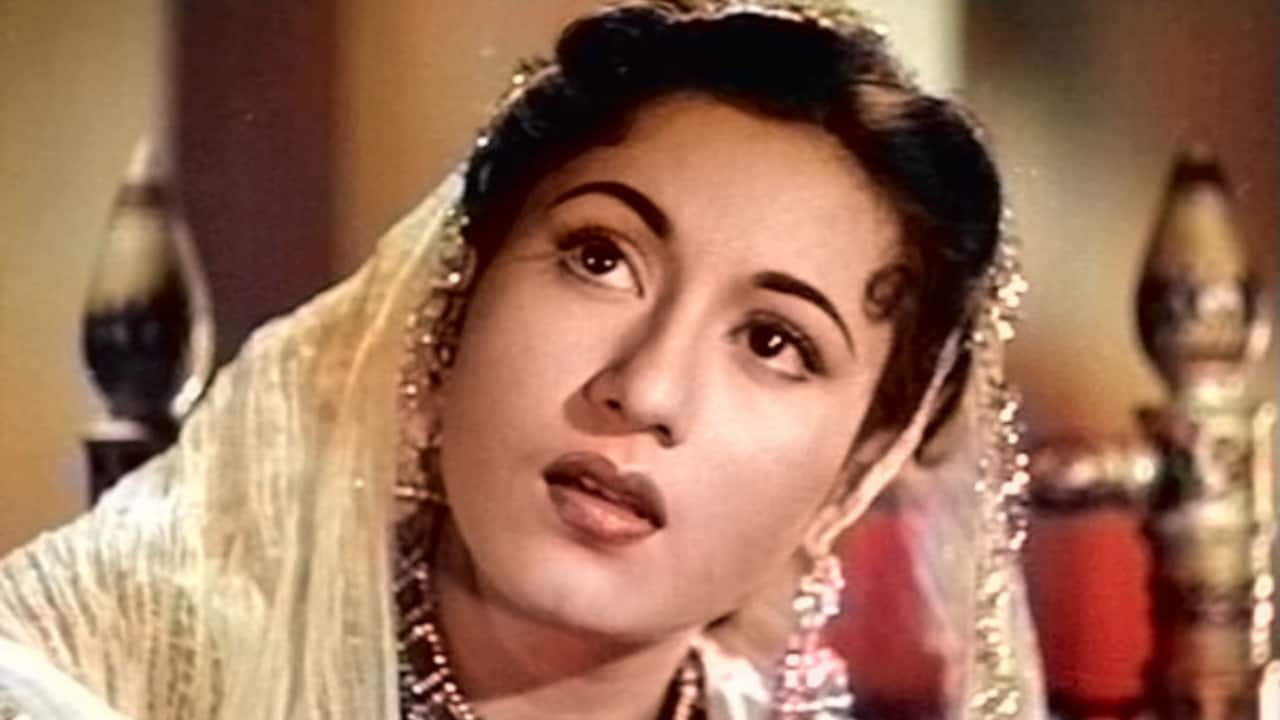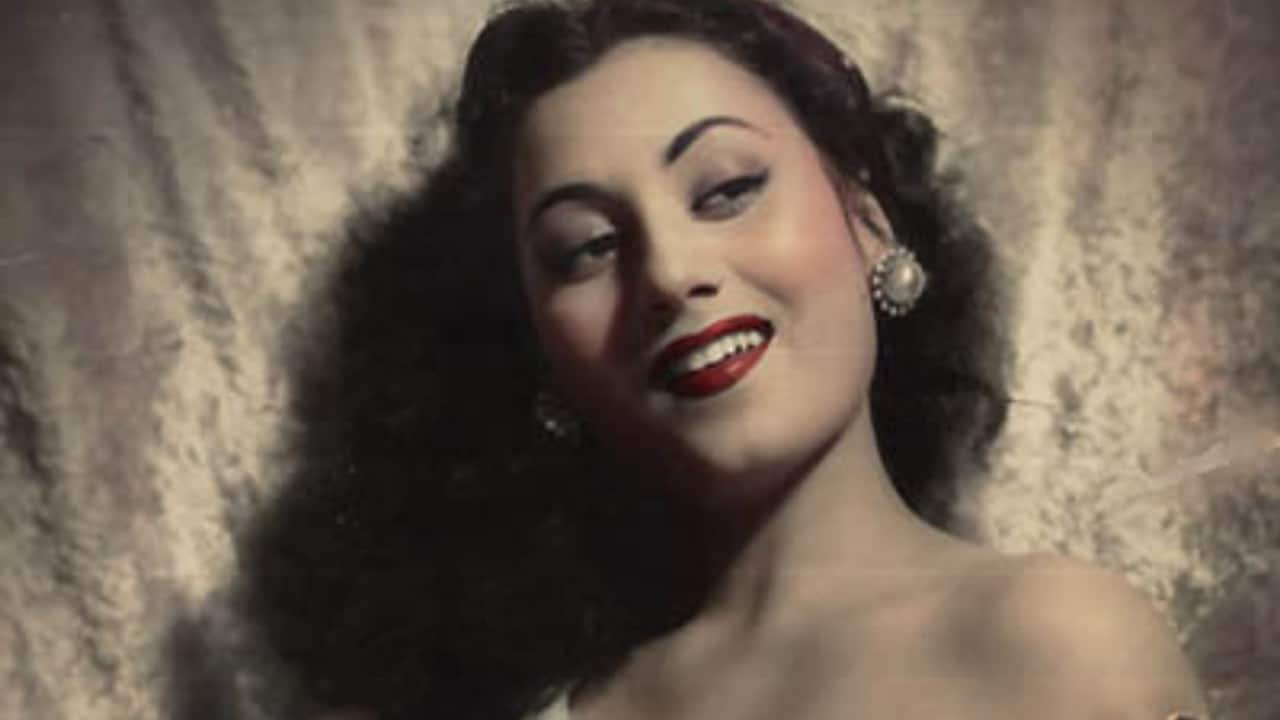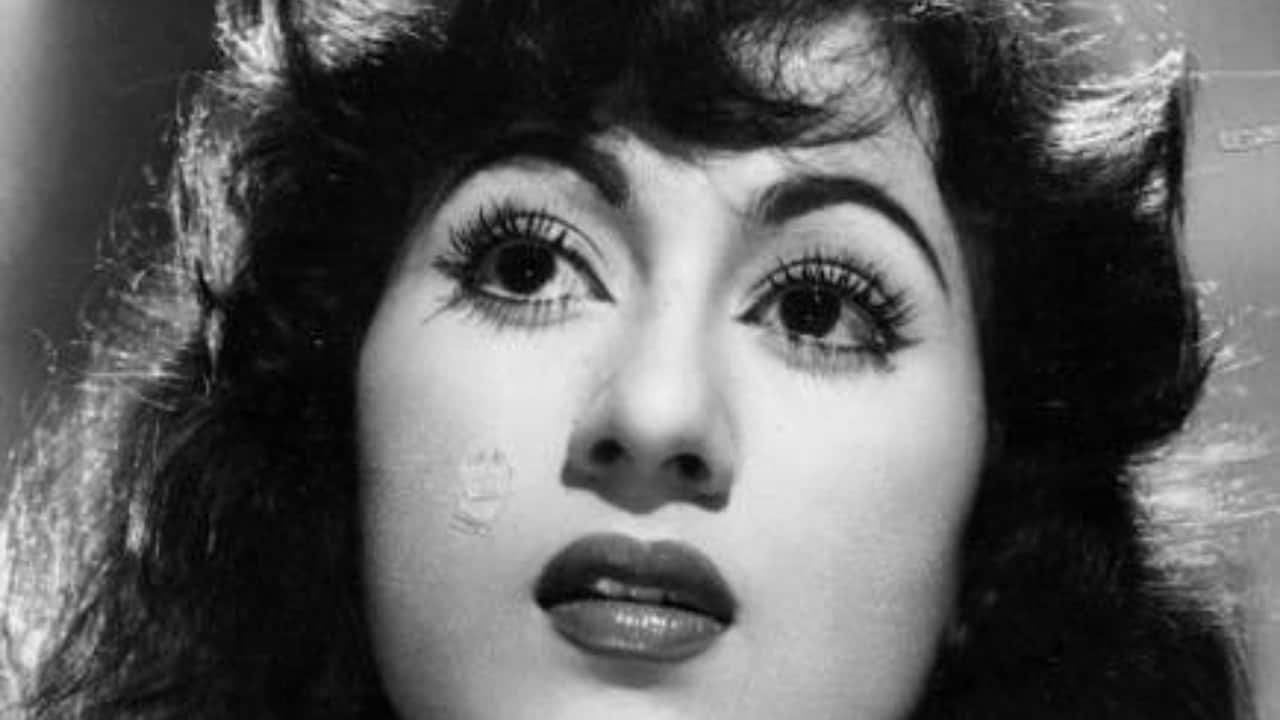



Madhubala, the enchanting beauty of Indian cinema, was a symbol of grace, charm, and immense talent. But behind the radiant smile and expressive eyes lay a life riddled with pain, heartbreak, and an incurable illness that would eventually claim her. Her final days were filled with solitude and suffering, a tragic contrast to the dazzling stardom she once enjoyed.
As her health deteriorated due to congenital heart disease (ventricular septal defect), she found herself battling not only the physical pain but also the emotional turmoil of feeling abandoned. According to her sister, Madhubala had become a shadow of her former self, reduced to a skeletal frame due to her worsening condition. She avoided meeting people, not wanting anyone to see her in that state. She would often look at herself in the mirror and say, “Dekho main kya se kya ho gayi! Agar logon ne meri halat dekhi toh main aur ro dungi.” (“Look what I’ve become! If people see me like this, I’ll cry even more.”)
 MadhubalaThe Decline of a Star
MadhubalaThe Decline of a StarMadhubala’s illness first revealed itself on the sets of Bahut Din Huye (1954), when she spat out blood while brushing her teeth. Despite being diagnosed with a heart defect, she continued working relentlessly, starring in classics like Mughal-E-Azam(1960), where she performed grueling sequences despite her failing health. Her dedication to her craft was unwavering, but her body couldn’t keep up.
Even as her relationship with Dilip Kumar fell apart, she found solace in Kishore Kumar, whom she married in 1960. However, their marriage was far from the fairy tale many imagined. Madhubala’s sister, Madhur, later revealed that Kishore Kumar left her at her father’s home, as he couldn’t take care of her while managing his own busy career. This isolation only worsened her condition. She longed for companionship, for emotional support, but was left alone in a battle she had to fight by herself.
 MadhuA Life of Isolation
MadhuA Life of IsolationWith her health rapidly declining, Madhubala became a prisoner in her own home. Her body had grown frail, her radiant glow faded. Despite this, she refused to be a burden on her family, never troubling them with her pain. She would take her own bath, eat on her own, and even insisted that they not waste money on her. An oxygen cylinder was always kept by her side as breathing became difficult. She would often say, “Mujhpar paise mat kharch karo. Main bachne wali nahi hoon. Koi aur kamane wala bhi toh nahi hai.” (“Don’t waste money on me. I won’t survive. There’s no one else to earn.”)
The Final DaysAs her body succumbed to the illness, her condition became critical. On February 23, 1969, her father called Kishore Kumar, urging him to come. But Kishore, who was in Kolkata for a show, hesitated, fearing financial losses. Her father warned him, “Agar nahi aaye toh phir kabhi nahi dekh paoge.” (“If you don’t come now, you’ll never see her again.”)
 Actress Madhubala
Actress MadhubalaDilip Kumar flew down from Madras to attend her funeral, but it was too late. For the next three days, food was sent from Dilip’s home, a silent gesture of love and remorse. Madhubala’s parents were inconsolable. Her father, unable to bear the pain, visited her grave every day, lamenting, “Mujhe marna chahiye tha uski jagah.” (“I should have died instead of her.”)
A Legacy of StrengthDespite being given only two years to live after her diagnosis, Madhubala survived for nine, defying all odds with sheer willpower. She would often say, “Main nahi marungi. Ek din theek ho jaungi.” (“I won’t die. One day, I will recover.”) But fate had other plans.
Discover the latest Business News, Sensex, and Nifty updates. Obtain Personal Finance insights, tax queries, and expert opinions on Moneycontrol or download the Moneycontrol App to stay updated!
Find the best of Al News in one place, specially curated for you every weekend.
Stay on top of the latest tech trends and biggest startup news.